For the first time since 1991 in Montenegro, a small Balkan country on the Adriatic coast, power may change hands. Formally, the party of current President of Montenegro Milo Đukanović won parliamentary elections on August 30. Supporters of Milo Đukanović’s Democratic Party of Socialists of Montenegro (DPS) eventually won slightly more than 35% of the vote.
However, the main opposition coalition “For the Future of Montenegro” won nearly the same amount. In addition, there are other opposition parties – the coalition “Peace is our nation”, which gained 12.53%, and the coalition “In Black and White” which received 5.53%. All of them are ready to form a ruling coalition, which may lead to the end of Djukanovich’s 30-year rule.
In a joint statement, the leaders of opposition called for the creation of an “expert government” and said they would work to change what they called “discriminatory laws,” including the Law on Religious Freedom. That law created the pretext for the creation of an independent from Serbian but uncanonical Orthodox Church, an idea supported by the leader of the country.
The resolution of the situation with the Law on Religious Freedom has been the main topic in the country since December last year and dominated the election campaign in 2020. Analysts agree that this issue largely decided the outcome of the election, as the law deepened the division among Montenegrins, who are mostly Orthodox Christians but differ in political affiliation.
Many objected to Montenegro’s NATO membership and maintained close ties with Belgrade and the Serbian Orthodox Church (SOC), which began a series of protests against the law that lasted several months.
Đukanović: a smuggler and mobster
The Anti-Church law seems likely to bury Đukanović ‘s regime, although he will remain in office for three years. Despite his despotic rule and the arrest of the main opposition leaders in 2016, Milo Đukanović is supported by leaders in the West for his loyalty to them.
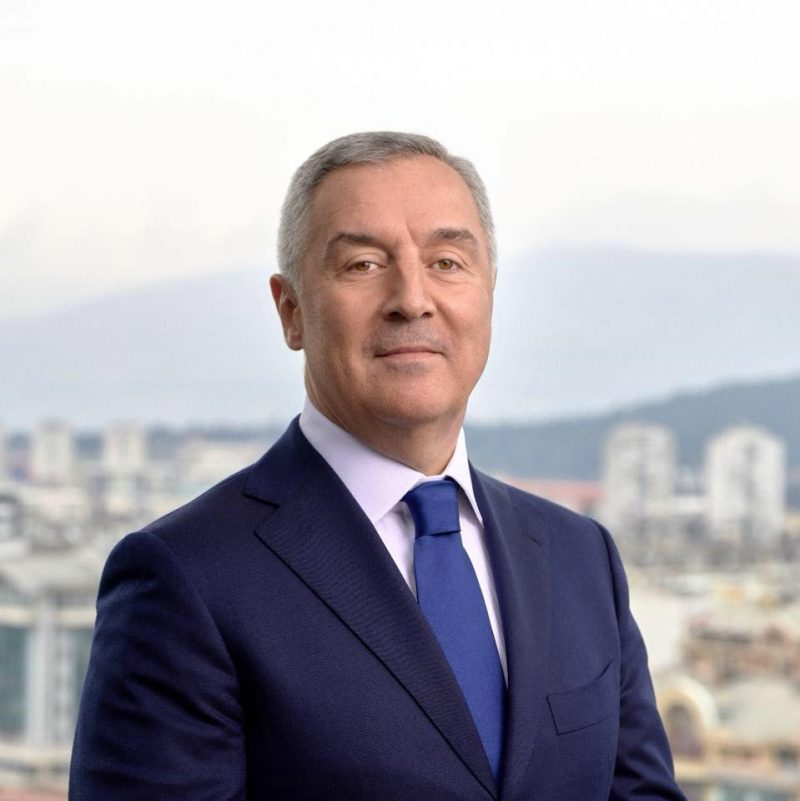
It was Đukanović who secured Montenegro’s accession to NATO in 2017, after which the entire country was shaken by mass protests: half of Montenegrins were against joining the aggressive alliance. However, the authorities were able to suppress these demonstrations. Opposition leaders were thrown into prison on charges of organizing a coup, allegedly with the help of Russia.
A former Yugoslavian communist, he became the leader of Montenegro in 1991. Under his rule Montenegro, formally a part of Yugoslavia, was cut off from other ex-Yu countries by a customs and currency barrier (the monetary unit of Montenegro is the euro). On his initiative in 2006, a referendum was held, as a result of which Montenegro withdrew from the confederation with Serbia.
Đukanović ‘s 30 years in power caused no objections from either the EU, NATO or the US, as he conducted a completely pro-Western course. Moreover, the West also turned a blind eye to Đukanović ‘s outright criminal activities.
In 2003, the Italian prosecutor’s office accused Đukanović of links to organized crime, which was engaged in the illegal smuggling of cigarettes to Italy. The leader of Montenegro was then accused of direct association with the leader of the famous Italian Camorra – Paolo Savino.
The court, however, did not prosecute Đukanović, because as the leader of the independent state, he had immunity.
Đukanović was also accused of having links to the drug trade. Đukanović ‘s government once granted citizenship to internationally wanted Balkan drug lord Darko Sharic. Another drug lord – one of the heads of the Albanian drug mafia – Nasser Kelmendi – also took refuge in Montenegro for a long time. Montenegrin ports on the Adriatic were actively used by criminal groups with support from the West.
Numerous accusations and investigations have been leveled and subsequently suspended, in Italy, the US and a number of European countries. If Djukanovic is left without political immunity, he will be summoned to court and most likely receive a conviction. This is naturally why he is so accommodating and does exactly as his American patrons instruct him to.
Boyko Borisov: karate and crime
Bulgarian Prime Minister Boyko Borisov is a colorful figure: he looks more like a bodyguard than the leader of a country… Perhaps this is because he actually was a bodyguard.
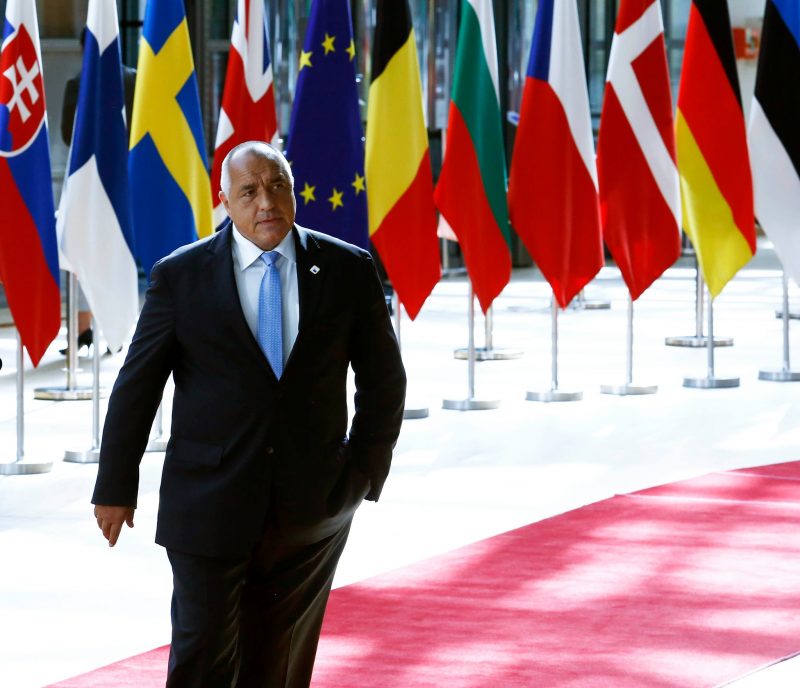
Boyko Borisov served in the Ministry of Internal Affairs, in the fire department in 1982-1990, and later was a teacher at the Higher Institute of Officer Training of the Ministry of Internal Affairs in Sofia, a karate coach. In 1991 he founded a private security company “Ipon-1”, which acquired an influential and well-known clientele.
According to Wikileaks cables sent from the American Embassy to the CIA, “Borisov has cooperated closely with the Embassy on law enforcement in the past and, publicly at least, remains strongly pro-American. However, Borisov has been implicated in serious criminal activity”.
While, according to the US embassy, Borisov requested direct assistance from the United States, it was noted that Borisov was involved in the trafficking of methamphetamines, and his cohabitant Tsvetelina Borislavova, head of Bulgarian American Credit Bank, was engaged in money laundering. Borisov’s inner circle included criminal leaders – Mladen Mihalev (AKA “Madzho”) and Roumen Nikolov (AKA “the Pasha”).
In 2007, US Congressional Quarterly (CQ) magazine accused Boyko Borisov of direct association with Bulgaria’s biggest gangsters. However, Borisov successfully lobbied the interests of the United States. He undermined the South Stream project, through which Russian gas was to flow to Europe via Bulgaria, and later had to be replaced by Turk Stream. Borisov also lobbied for close military cooperation with the US.
In January 2019, Bulgarian President and former Air Force Commander Rumen Radev harshly criticized Borisov, saying that he “broke off” a tender to buy new fighters designed to replace the outdated MiG-29. Possible replacements were Eurofighter Typhoons, Saab Gripens, Lockheed Martin F-16 or Boeing F-18. In December 2018, the Borisov government decided to buy the F-16, ignoring four of the seven tender criteria and exceeding the financial framework. President Radev called it a “triple blow to Bulgaria,” adding that the Americans should understand that they won the tender only thanks to lobbying.
In July 2020, accusations of ties to the mafia against Borisov reached a new peak. The head of state engaged in an open confrontation with the cabinet. President Rumen Radev accused the government led by Boyko Borisov of collusion with the mafia and personally led the street protests.
Massive anti-government protests took place not only in Sofia, but also in several other Bulgarian cities. The protests were triggered by a visit by an opposition leader to the beach controlled by oligarch Ahmed Dogan.
Dogan is a close ally of Boyko Borisov and the founder of the party Movement for Rights and Freedoms, which presents itself as defending the interests of the Turkish ethnic minority in Bulgaria. At the same time, Dogan actively opposes the current leadership of Turkey headed by President Recep Tayyip Erdoğan. Ankara, in turn, supports the new Turkish party in Bulgaria – Dost.
Aleksandr Vucic: fraternal ties
Serbian President Aleksandar Vucic is known for his dual position. On the one hand, he puts forward nationalist slogans and cooperates with Russia. On the other hand, he appointed Ana Brnabić, who worked for the US Agency for International Development from 2002 to 2011 as prime minister. Vucic is cooperating with NATO, as well as participating in negotiations with the Kosovo authorities, which could culminate in Serbia’s recognition of Kosovo and its accession to the EU.
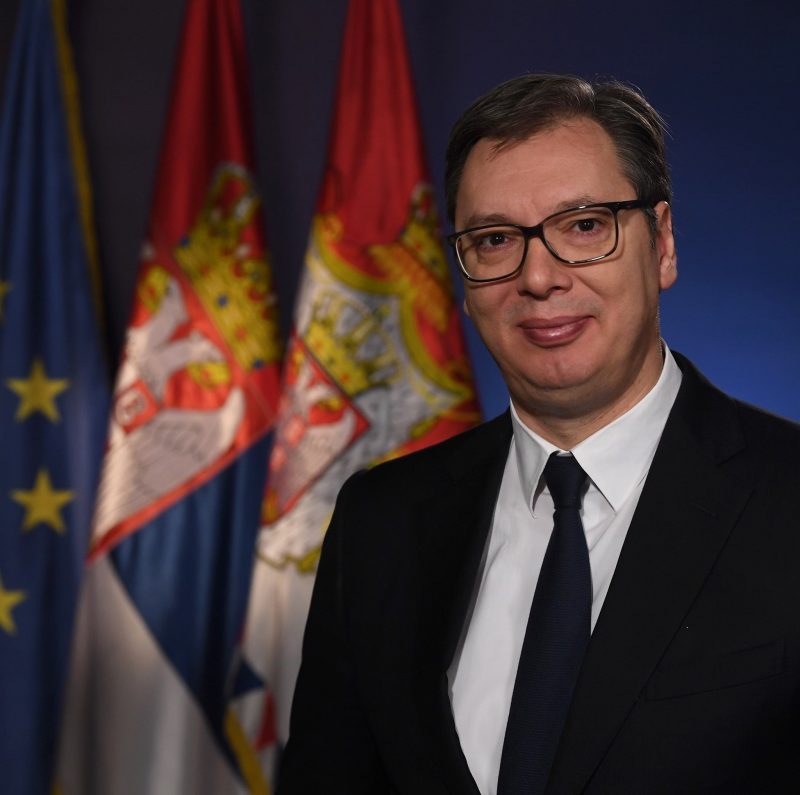
Last year, Serbian law enforcement uncovered the Jovanjica farm where marijuana was grown. According to media reports, the owner of the plantation called to close the question to the president’s brother, Andrej Vucic. Later, as reported by Serbian media, “Serbia’s Public Prosecutor’s Office forwarded to Organised Crime Prosecutor the criminal charges against President Aleksandar Vucic and his brother Andrej linked to a case of cultivating marijuana”.
Andrej is two years younger than Alexander. He graduated from the Faculty of Economics, and later worked at the National Bank of Serbia.
Andrej is suspected of involvement in various corruption scams. Last year he was seen in the company Zvonko Veselinović, a criminal leader from Serb-inhabited northern Kosovo. He positions himself as a Serbian fighter, but he also works closely with Albanian drug lords Ismet Osmani and Mentor Beciri.
Kosovo drug mafia
Kosovo, as the backbone of Albanian criminal networks in Europe, needs no introduction. With partial recognition in 2008, this former part of Serbia has become a paradise for Albanian criminal networks operating across Europe.
Hashim Thaci is the fifth president of the partially recognized Republic of Kosovo. By early 1999, he had become one of Kosovo’s most important field commanders. He led the Kosovo Albanian delegation to the Rambouillet talks. After the outbreak of war against Yugoslavia, NATO established its own government, in which he became prime minister.
According to Carla del Ponte, former prosecutor of the UN International Tribunal for the Former Yugoslavia, Hashim Tachi organized kidnappings and cut out human organs.
In a report by Swiss-Italian politician and lawyer Dick Marty published on the Council of Europe website in mid-December 2010, Hashim Tachi was named head of a Kosovo Albanian criminal group that smuggles weapons, drugs and human organs.
On June 24, 2020, the Special Prosecutor’s Office of the International Criminal Court in Kosovo reported that it had prepared charges against Hashim Thaçi, former Speaker of the Kosovo Parliament Kadri Veseli and several others for crimes against humanity and war crimes, including murder, enforced disappearance, persecution and torture. The Special Prosecutor’s Office noted that it had decided to report the preparation of the charges, as Thaçi and Veseli have repeatedly attempted to obstruct the work of the Special Court.
On June 29, 2020, Hashim Thaci announced that he would resign if the Special Court for Crimes in The Hague approved the indictment against him for war crimes of 1998-1999.
However, even if Thaçi resigns, he is ready to be replaced by Kosovo prime minister Ramush Haradinaj. He was also charged with war crimes by the Hague Tribunal, but was acquitted.
In 2000, an incident of shooting between Haradinaj’s group and a rival Albanian clan came to the media attention. The US backed the field commander at the time:
“Following the shooting of Haradinaj, known almost universally in the province as simply Ramush, was flown by helicopter to Camp Bondsteel and then onto Germany to be treated in a US Army hospital for shrapnel wounds. The Guardian also noted that “American withheld evidence linking a leading politician to a gunfight, drugs and war crimes.
Albania: European narco-state
In the early 1990s, Sali Berisha’s government urged Albanians to invest in dodgy pyramid schemes that were little more than fronts for drug money laundering and arms trafficking.
This scheme led to a mass robbery of ordinary Albanians. Mass unrest began in the country as a result. In 1997, 7,000 NATO troops were brought in to keep order. After that, weapons from Albania began to leave for Kosovo en masse, and Sali Berisha became a close ally of Hashim Thaci.
In 2019, mass protests took place in Albania. At the call of the opposition, led by the Democratic Party, thousands of people took to the streets of the capital – Tirana. They accuse the Socialist government and Prime Minister Eddy Rama of corruption and links to organized crime.
On the eve of the 2017 parliamentary elections, the German tabloid Bild released 16 audio recordings. In them, Rama and his entourage communicated with the police and members of organized crime.
Albania now “has become Europe’s first narco-state”, a state ‘where all legitimate institutions have become penetrated by the power and wealth of the illegal drug trade’. Even the US Department of State recognizes rampant corruption and links as a crime. But that has not prevented Albania from becoming a member of NATO and negotiating for EU membership.
Albania is the largest supplier of marijuana to the European market, but the flow of cocaine from Albania to the EU is on the rise too.
Albanian drug cartels play a key role in the election process by buying votes for the right politicians. Thus, according to an EU-sponsored study, 20% of Albanians admitted that their votes were bought in the elections.
The last two Albanian interior ministers were closely associated with the drug mafia. Socialist Movement for Integration, or LSI – the party of Albanian President Ilir Meta – is closely associated with the businessman Klement Balili, a man Greek law enforcement agencies call the “Pablo Escobar of the Balkans”
Macedonia: Extortion and the Albanian Mafia
On August 31, elections for a new government in Northern Macedonia took place at the Macedonian parliament. Former prime minister Zoran Zaev won the elections with confidence.
Zoran Zaev, the leader of Macedonian social democrats who replaced centrist Nikola Gruevski, has always positioned himself as a pro-Western politician. It was under him that the country agreed with Greece to change the name from Macedonia to Northern Macedonia. Patriotic forces considered it a humiliation, but with the support of the Albanian minority Zajev managed to retain power. After that, Macedonia became a member of NATO in 2020.
The prime minister of Northern Macedonia Zoran Zaev, who came to power under slogans of struggle against corrupt politicians and with support of the US and George Soros, finds himself in the center of numerous corruption scandals.
Thus, in July 2019, Russian pranksters, pretending to be former Ukrainian President Petro Poroshenko, persuaded the politician to bribe Patriarch Bartholomew of Constantinople to solve the issue of autocephaly of the Macedonian Orthodox Church Later. Thanks to journalists of the Italian edition La Verita, information about the involvement of the head of the Macedonian Cabinet of Ministers in extortion of money from the local businessman was made public.
La Verita: #Zaev involved in racket, urges Ruskoska to unblock 750,000 euros from Siljan Micevskihttps://t.co/i3anG1aLMo pic.twitter.com/pvRfbRQKP3
— RepublikaEng (@RepublikaEng) October 20, 2019
Zaev is also accused of mediating for money for a Montenegrin businessman and buying votes for money in the 2016 elections.
Zoran Zaev’s main partner in the government coalition is Ali Ahmeti, the leader of the Albanian Democratic Union for Integration (DUI). One of the main founders of the Kosovo Liberation Army, he was one of the leaders of the armed Albanian uprising in Macedonia in 2001 (National Liberation Army political representative). At the end of August, it became clear that Ali Ahmeti has been invited to testify again with the Special Prosecutor’s Office of Kosovo in The Hague. (https://www.danas.rs/politika/lider-dui-ali-ahmeti-ponovo-pozvan-u-hag/).
Ali Ahmeti is a murderer, kidnapper, extortionist, trafficker in women, girls, drugs, arms, etc. He is not only unfit for any office or party leadership, he is unfit to walk among the civilized & should be in jail. One day justice will prevail in this life or the next#Macedonia https://t.co/pRYUQ5GpHz
— Jason Miko (@JasonMiko) June 25, 2020
Ahmeti and other members of his party are accused of having close ties to Albanian and Kosovo criminal circles. Ahmeti himself admitted that sex smugglers could be among his supporters. In 2001, the DUI supported Hashim Tachi when he was accused of organizing and organising trafficking.
The power of the scoundrels
After the countries of Southeast Europe said goodbye to the legacy of socialism, the region began to move towards rapprochement with the West. But the word “Balkans” almost immediately became synonymous with wars, conflict, crime and corruption. Three decades of rapprochement with NATO and the EU have not fundamentally changed the situation.
The most pro-Western regimes (with the exception of maybe today’s Croatia, though Croatia Franjo Tuzman was no exception in the womb of criminal regimes) are simply part of international criminal networks. The promises of good governance and reform that the EU and the US promised were hollow. Corrupt criminal networks run the show.
Either the EU and US are not capable of making things right in the Balkans and are content with the politicians they are, or they do not want to fix things.
Criminal politicians are easy to blackmail, and if there is dirt on a person, they can be kept under control, something the West takes advantage of as often as possible.
Finally, one cannot rule out the lucrative interest of individual intelligence agencies and elites interested in the prosperity of gang networks in Europe, drug trafficking, smuggling and human trafficking.
One way or another, with the connivance or acquiescence of the West, the Balkans have created a unique environment – the power of scoundrels, the power of criminals, for the analysis of which the classic realistic approach is not enough, taking into account the national interests of individual countries or the influence of other states is not sufficient. Criminal groups, clans and networks play a central role in the political life of the region.
For example, the idea of a “Greater Albania” for Albanian elites reflects the drug networks’ desire for new control zones rather than the desire for a truly strong and capable regional state. The US supports these Albanian networks in the region, and in this way undermines all efforts at creating stable independent governance. They rely on criminal networks linked by clan ties.
However, the West has another instrument of influence: the media, NGOs, human rights movements and activists.
Other states that are trying to operate in the Balkans: China and Russia, but also Turkey, mostly turn to local elites. This is how they fall into the trap: these criminal elites keep money in the West and focus on Western patterns of consumption culture. Their movement towards other centers, non-Western, is always limited.
At the same time, the West can always use public discontent for its own purposes by putting liberal human rights defenders at the forefront of the fight against criminal regimes, playing both sides of the aisle. Something similar happened during the Arab Spring. Thus, those who want to defeat the West in the Balkans need to learn how to work with the people rather than the dubious elites at the top.







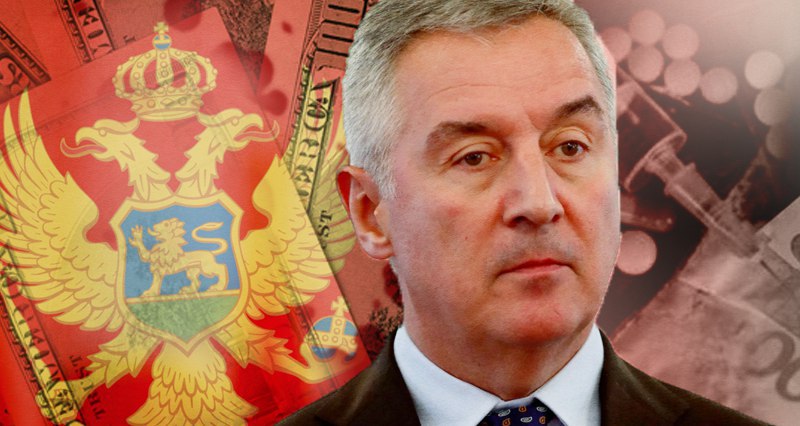

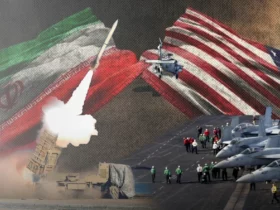







Leave a Reply